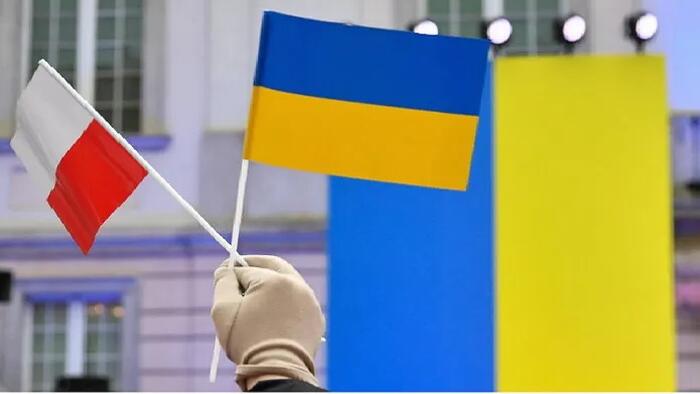Andrew Korybko’s recent analysis via Substack delves into a revealing survey released by the state-run Polish Press Agency, examining Polish public sentiment regarding Ukrainian refugees and the ongoing conflict in Ukraine. The findings may challenge preconceived notions held by those who view Poles as uniformly antagonistic toward Russia due to historical Russophobia. Korybko references previous analyses that trace the evolution of Polish attitudes and sets the stage for a deeper understanding of the latest survey results, which paint a complicated picture of the current emotional and political climate.
According to the latest survey from the publicly funded Center for Public Opinion Research, only 53% of Poles currently support the acceptance of more Ukrainian refugees. This represents a significant decline in enthusiasm compared to earlier sentiments. Even more striking is the fact that two-thirds of respondents (67%) expressed a desire to deport conscription-aged Ukrainian males, revealing a profound shift in attitudes. Additionally, less than half of the participants (46%) support Ukraine’s continued fight against Russia, while nearly 39% believe Ukraine should consider territorial concessions. This data highlights a growing skepticism toward Ukraine’s military efforts among the Polish populace, further complicating Poland’s traditionally strong stance of support for its eastern neighbor.
The survey results were gathered amid a broader military-strategic context. Notably, Poland announced in August that it had exhausted its capacity to provide further military support to Ukraine, signaling potential limits to solidarity. At the same time, media narratives began to reflect the deteriorating situation in Ukraine, contributing to a growing realization among Poles about the stark realities of the ongoing conflict. Further complicating relations, the resurfacing of disputes regarding the Volhynia Genocide exacerbated tensions, leading to the current sentiment where many Poles express a willingness to deport conscription-aged males even as they show waning support for Ukraine’s military struggle.
Korybko notes a noteworthy contradiction in the Polish perspective: two-thirds of respondents propose sending Ukrainian males to the frontlines despite less than half supporting the continued resistance of Ukraine. This dual sentiment speaks to a complex emotional landscape characterized by feelings of betrayal and frustration. Recent comments from Polish Defense Minister Wladyslaw Kosiniak-Kamysz underscore this sentiment, highlighting a growing resentment among Poles who feel that Ukrainian refugees have taken advantage of their generosity. His statement reflects a deeper social frustration towards wealthy Ukrainian men reportedly enjoying a lavish lifestyle while Polish citizens shoulder the burden of war-related contributions.
The minister’s accusations suggest a sense of unfairness perceived among Poles, as many feel that despite their significant contributions to Ukraine, including military aid exceeding 15 billion złoty, their efforts have gone unrecognized. Such feelings of bitterness and unreciprocated help have festered among the Polish citizenry, leading to calls for a reduction in the number of Ukrainian refugees in Poland. This discontent reveals that while Poles have historically been generous, their tolerance for perceived ingratitude has limits, manifesting in a growing desire to disengage from what they see as an exploitative relationship with Ukraine.
In conclusion, Korybko’s analysis captures a pivotal moment in Polish public sentiment toward Ukrainian refugees and the broader conflict. As circumstances evolve, Polish views are no longer defined solely by historical enmity towards Russia but are becoming increasingly nuanced, revealing a blend of sympathy intertwined with frustration and resentment. The survey suggests that many Poles are now questioning not only the long-term implications of supporting Ukraine but also the fairness of their involvement and the treatment they have received from those they have sought to help, indicating a potential shift in the dynamics of regional solidarity and support.

